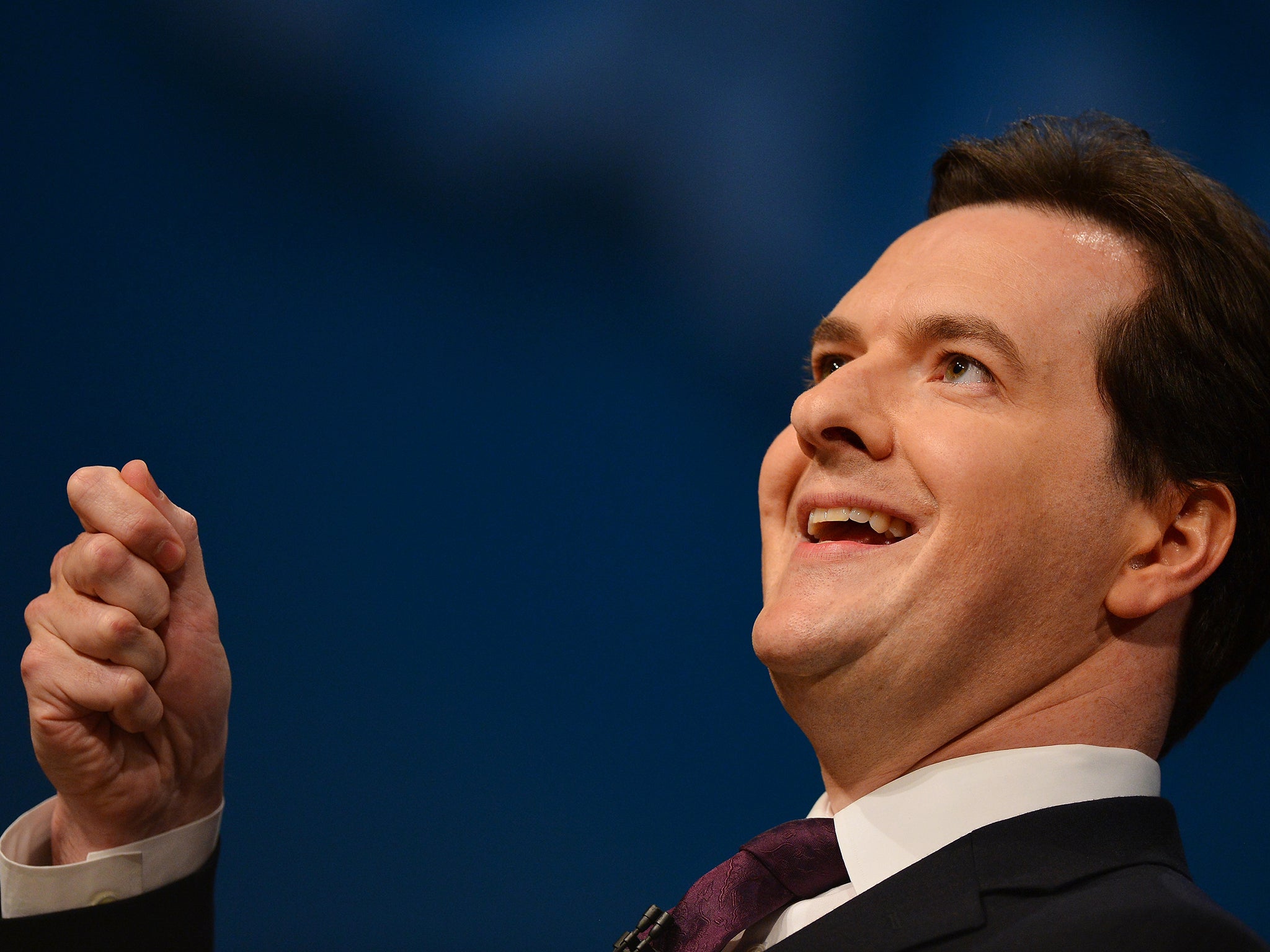There has to be a limit on how far Tory cuts can go
Comparing a nation's economy to an ordinary household is foolish and dangerous


Economists are beating their heads against a brick wall. They’ve been telling the Tories for years that it’s foolish and dangerous to compare a nation’s economy to that of an ordinary household. But the Chancellor was at it again.
“As everyone knows, when it comes to living within your means, the sooner you start the smoother the ride,” George Osborne declared to the Commons, as he unveiled an extra £3bn of departmental spending cuts for the current fiscal year.
Yesterday’s cuts are merely the entrée to a new feast of austerity that will be outlined later this year. The Institute for Fiscal Studies (IFS) estimates that Mr Osborne will have to cut spending in unprotected departments by £30bn in total over the three years to 2018-19 to meet his goal of running a budget surplus in that year. That’s a 15 per cent reduction. And if defence spending is protected in real terms too – which seems increasingly possible– the cuts imposed on the rest of Whitehall would increase to 19 per cent.
That’s a serious reduction in spending power – and it will have serious implications for the functions of these departments and the services they will be able to provide. It’s crucial to remember too that these cuts come on top of some very substantial reductions to unprotected Whitehall spending in the last parliament. Inflation-adjusted spending is expected by the IFS to be a cumulative 30 per cent lower in unlucky departments such as local government, transport and justice by 2018-19.
Treasury ministers seem relaxed about this. They say critics prophesied doom resulting from cuts in the last parliament, yet the sky did not fall in. They point to surveys that suggest the public do not think the quality of public services has universally plummeted in recent years. They argue that Whitehall departmental will merely be asked to continue reducing spending for the next three years at roughly the same annual pace as they did in the last Parliament. What’s so hard about that?
But as Giles Wilkes, who was a special adviser to former Business Secretary Vince Cable, has pointed out, this faulty reasoning could prove their undoing. A patient can lose 10 per cent of their blood in 10 minutes and still feel OK. It doesn’t follow that they can carry on haemorrhaging for another 10 minutes and still feel fine. At some level of blood loss the patient gives up the ghost. We are about to discover out how much bloodletting some of our key British public services can stand.
Join our commenting forum
Join thought-provoking conversations, follow other Independent readers and see their replies
Comments
Bookmark popover
Removed from bookmarks